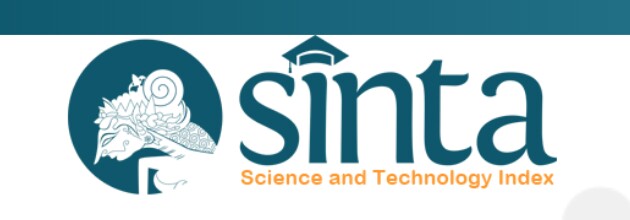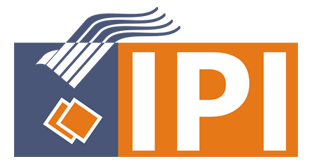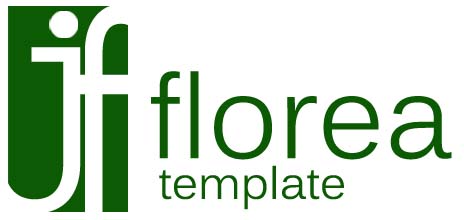Kesadaran Metakognitif Mahasiswa Melalui Pembelajaran Mandiri
Abstract
Keywords
Full Text:
PDFReferences
Akman, Ö., & Alagöz, B. (2018). Relation between Metacognitive Awareness and Participation to Class Discussion of University Students.
Ambrose, S. A., Bridges, M. W., DiPietro, M., Lovett, M. C., & Norman, M. K. (2010). How learning works:Seven research-based principles for smart teaching. John Wiley & Sons.
Aydın, S. (2015). An Analysis of the Relationship Between High School Students' Self-Efficacy, Metacognitive Strategy Use and Their Academic Motivation for Learn Biology. Journal of Education and Training Studies, 4(2), 53-59.
Bensley, D. A., & Spero, R. A. (2014). Improving Critical Thinking Skills and Metacognitive Monitoring through Direct Infusion. Thinking Skills and Creativity, 12, 55-68.
Brown, A. L. (1987). Control, self-regulation, and other more mysterious mechanisms. In F. E. Weinert and R. H. Kluwe (Eds.), Metacognition, motivation, and understanding (pp. 65-116). Hillsdale, NJ: Lawrence Erlbaum Associates, Publishers.
Chantharanuwong, W., Thatthong, K., Yuenyong, C., & Thomas, G. P. (2012). Exploring the Metacognitive Orientation of the Science Classrooms in A Thai Context. Procedia-Social and Behavioral Sciences, 46, 5116-5123.
Corebima, A.D. 2006. Metakognitive Skill Measurement Integrated In Achievement Test. SM310509ADC.
Cotterall, S., & Murray, G. (2009). Enhancing metacognitive knowledge: Structure, affordances and self. System, 37(1), 34-45.
Dabarera, C., Renandya, W. A., & Zhang, L. J. (2014). The impact of metacognitive scaffolding and monitoring on reading comprehension. System, 42, 462-473.
Dye, K. M., & Stanton, J. D. (2017). Metacognition in Upper-Division Biology Students: Awareness Does Not Always Lead to control. CBE-Life Sciences Education, 16(2), ar31.
Ellis, A. K., Denton, D. W., & Bond, J. B. (2014). An analysis of research on metacognitive teaching strategies. Procedia-Social and Behavioral Sciences, 116, 4015-4024.
Ellis, A., Bond, J., & Denton, D. (2012). An Analytical Literature Review of the Effects of Metacognitive Teaching Strategies in Primary and Secondary Student Populations. Asia Pacific Journal of Educational Development, 1(1), 9-23.
Flavell, J. H. (1979). Metacognition and cognitive monitoring: A new area of cognitive–developmental inquiry. American psychologist, 34(10), 906.
Freeman, E. E., Karayanidis, F., & Chalmers, K. A. (2017). Metacognitive monitoring of working memory performance and its relationship to academic achievement in Grade 4 children. Learning and Individual Differences, 57, 58-64.
Kleitman, S., & Gibson, J. (2011). Metacognitive beliefs, self-confidence and primary learning environment of sixth grade students. Learning and Individual Differences, 21(6), 728-735
Lei, P. L., Sun, C. T., Lin, S. S., & Huang, T. K. (2015). Effect of metacognitive strategies and verbal-imagery cognitive style on biology-based video search and learning performance. Computers & Education, 87, 326-339.
Lukitasari, M., Handhika, J., & Murtafiah, W. (2016, October). Analisis Kebutuhan E-Portofolio Berbasis Metakognisi untuk Meningkatkan Ketrampilan Abad 21. In Prosiding Seminar Biologi (Vol. 13, No. 1, pp. 93-96).
Mynlieff, M., Manogaran, A. L., Maurice, M. S., & Eddinger, T. J. (2014). Writing Assignments With A Metacognitive Component Enhance Learning In A Large Introductory Biology Course. CBE-Life Sciences Education, 13(2), 311-321.
Norman, E., & Furnes, B. (2016). The relationship between metacognitive experiences and learning: Is there a difference between digital and non-digital study media?. Computers in Human Behavior, 54, 301-309.
Öza, H. (2016). Metacognitive Awareness and Academic Motivation: A Cross-Sectional Study in Teacher Education Context of Turkey.
Raes, A., Schellens, T., De Wever, B., & Benoit, D. F. (2016). Promoting metacognitive regulation through collaborative problem solving on the web: When scripting does not work. Computers in Human Behavior, 58, 325-342.
Rahimirad, M. (2014). The impact of metacognitive strategy instruction on the listening performance of university students. Procedia-Social and Behavioral Sciences, 98, 1485-1491.
Roelle, J., Nowitzki, C., & Berthold, K. (2017). Do cognitive and metacognitive processes set the stage for each other?. Learning and Instruction, 50, 54-64.
Schraw, G., & Dennison, R. S. (1994). Assessing metacognitive awareness. Contemporary educational psychology, 19(4), 460-475.
Stanton JD, Neider XN, Gallegos IJ, Clark NC (2015). Differences in metacognitive regulation in introductory biology students: when prompts are not enough. CBE Life Sci Educ 14, ar15.
Veenman MVJ (2005). The assessment of metacognitive skills: What can be learned from multi-method designs? In: Lernstrategien und Metakognition: Implikationen für Forschung und Praxis, ed. C Artelt and B Moschner, Berlin: Waxmann, 75–97.
Yıldız-Feyzioğlu, E., Akpınar, E., & Tatar, N. (2013). Monitoring students’ goal setting and metacognitive knowledge in technology-enhanced learning with metacognitive prompts. Computers in Human Behavior, 29(3), 616-625.
Zhussupova, R., & Kazbekova, M. (2016). Metacognitive strategies as points in teaching reading comprehension. Procedia-Social and Beha
Article Metrics
Abstract has been read : 303 timesPDF file viewed/downloaded: 0 times
DOI: http://doi.org/10.25273/florea.v9i2.14435
Refbacks
- There are currently no refbacks.
Copyright (c) 2022 Florea : Jurnal Biologi dan Pembelajarannya

This work is licensed under a Creative Commons Attribution-ShareAlike 4.0 International License.
Florea: Jurnal Biologi dan Pembelajarannya indexed by:



Copyright Florea: Jurnal Biologi & Pembelajarannya
View Florea Stats





